Filter by
SubjectRequired
LanguageRequired
The language used throughout the course, in both instruction and assessments.
Learning ProductRequired
LevelRequired
DurationRequired
SkillsRequired
SubtitlesRequired
EducatorRequired
Explore the Petroleum Engineering Course Catalog
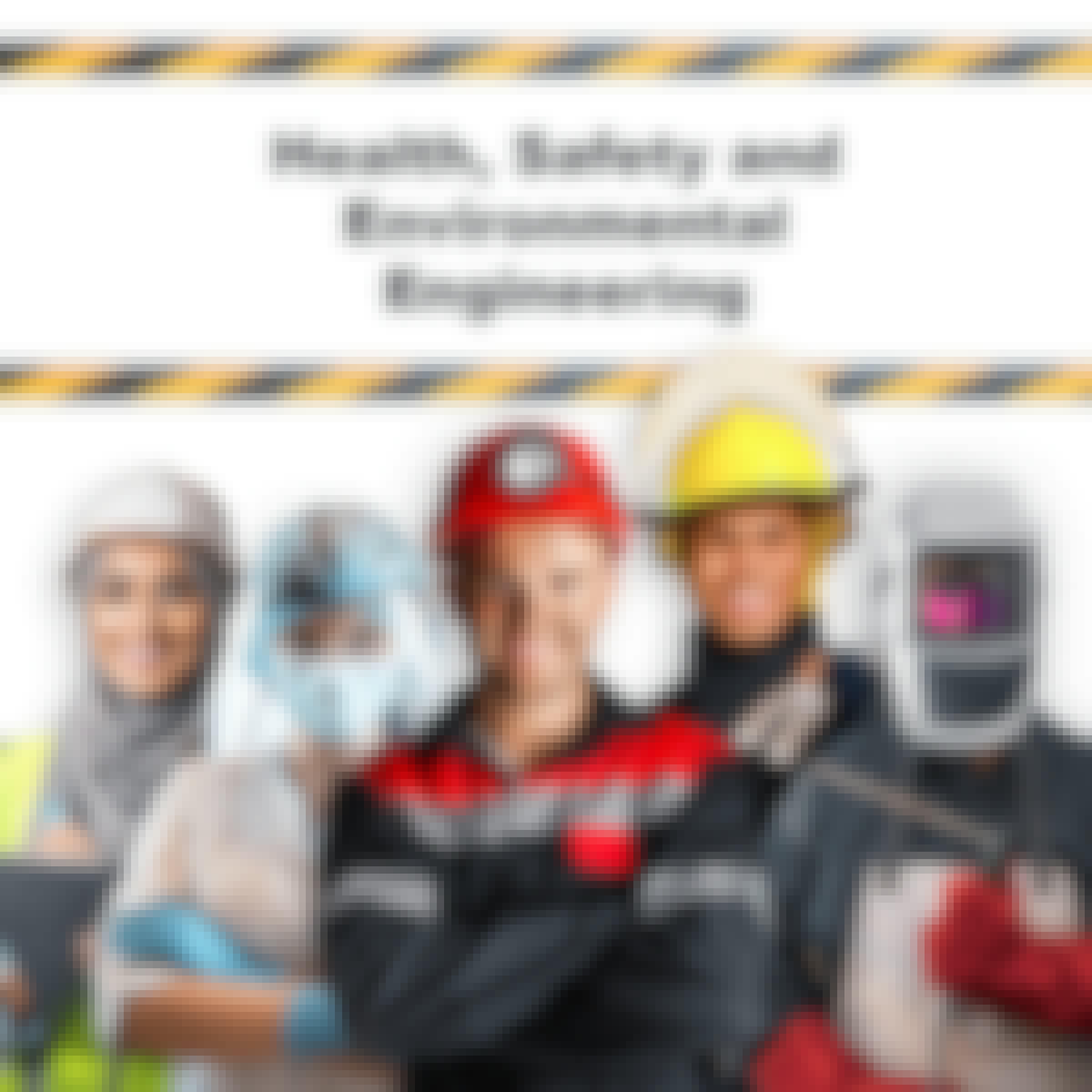 Status: NewStatus: Free Trial
Status: NewStatus: Free TrialKhalifa University
Skills you'll gain: Environment Health And Safety, Safety Training, Occupational Safety and Health Administration (OSHA), Accident Prevention, Safety Standards, Hazard Analysis, Legal Risk, Risk Management, Safety Audits, Regulatory Compliance, Compensation Management
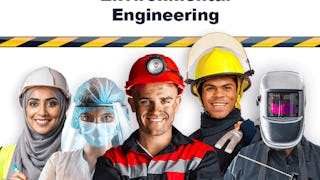 Status: NewStatus: Free Trial
Status: NewStatus: Free TrialKhalifa University
Skills you'll gain: Environmental Management Systems, Environment Health And Safety, Environmental Monitoring, Accident Reporting, Safety Training, Occupational Safety and Health Administration (OSHA), Fire And Life Safety, Accident Prevention, Hazardous Waste Operations And Emergency Response Standard (HAZWOPER), Environmental Regulations, Environmental Engineering, Environmental Laws, Environmental Resource Management, Risk Management, Risk Management Framework, Environmental Engineering and Restoration, Risk Analysis, Environment and Resource Management, Engineering Management, Engineering
 Status: Free Trial
Status: Free TrialL&T EduTech
Skills you'll gain: Oil and Gas, Petroleum Industry, Hazard Analysis, Safety Standards, Environmental Resource Management, Energy and Utilities, Environmental Regulations, Environment Health And Safety, Big Data, Plant Operations and Management, Waste Minimization, Process Engineering, Chemical Engineering, Risk Analysis, Environmental Engineering, Failure Mode And Effects Analysis, Data Management, Pump Stations, Data Processing, Process Control
 Status: Preview
Status: PreviewDuke University
Skills you'll gain: Oil and Gas, Market Dynamics, Energy and Utilities, Transportation Operations, Operations, Production Process, Market Trend, Cost Estimation, Market Analysis, Natural Resource Management
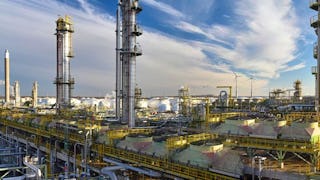 Status: Free Trial
Status: Free TrialL&T EduTech
Skills you'll gain: Engineering Drawings, Construction Engineering, Hydraulics, Mechanical Design, Blueprint Reading, Petroleum Industry, Building Codes, Process Flow Diagrams, Civil Engineering, Oil and Gas, Construction Inspection, Failure Analysis, Construction, Engineering Analysis, Engineering Calculations, Engineering Plans And Specifications, Energy and Utilities, Mechanical Engineering, Chemical Engineering, Process Engineering
 Status: Free Trial
Status: Free TrialL&T EduTech
Skills you'll gain: Oil and Gas, Petroleum Industry, Environmental Engineering, Environmental Regulations, Energy and Utilities, Hydrology, Chemical Engineering, Engineering Analysis, Geostatistics, Water Resources, Production Process, Process Engineering, Hydraulics, Automation, Emerging Technologies, Analytical Testing
What brings you to Coursera today?
 Status: Free Trial
Status: Free TrialUniversity at Buffalo
Skills you'll gain: Personal protective equipment, Electrical Substation, Electrical Power, Electric Power Systems, Electrical Systems, Environmental Regulations, Energy and Utilities, Basic Electrical Systems, Oil and Gas, Safety Training, Electrical Equipment, Occupational Safety and Health Administration (OSHA), Hazard Analysis, Workforce Development, Billing, Sustainable Development, Safety Standards, Sustainable Technologies, Supply Chain, Regulatory Affairs
 Status: Free Trial
Status: Free TrialUniversity of Leeds
Skills you'll gain: Stakeholder Management, Stakeholder Engagement, Engineering Management, Scope Management, Risk Management, Project Finance, Project Scoping, Program Management, Project Portfolio Management, Stakeholder Analysis, Project Risk Management, Project Management, Business Risk Management, Governance, Project Management Life Cycle, Project Performance, Contract Management, Financial Analysis, Project Implementation, Project Design
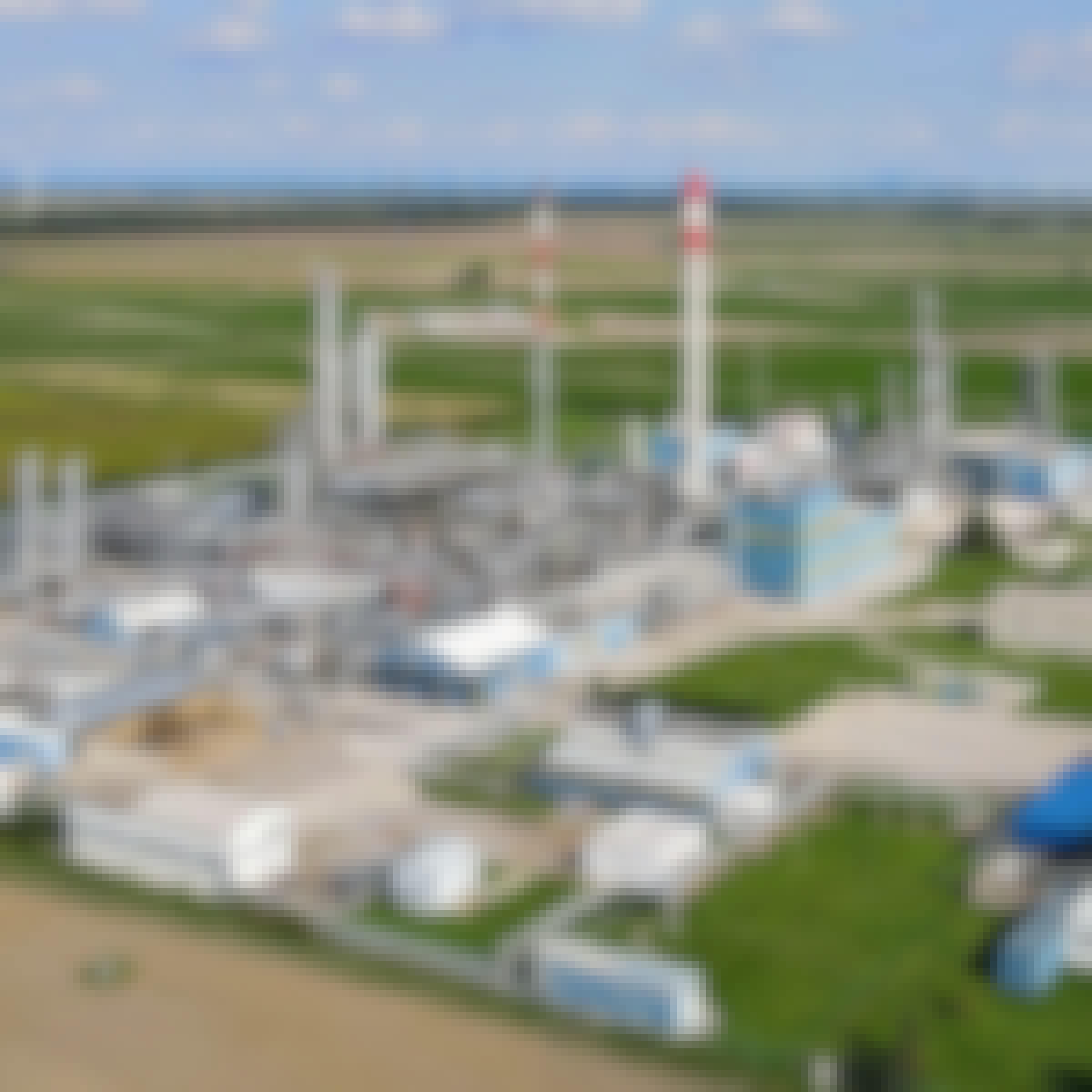 Status: Free Trial
Status: Free TrialL&T EduTech
Skills you'll gain: Oil and Gas, Petroleum Industry, Process Engineering, Chemical Engineering, Process Control, Production Process, Manufacturing and Production, Safety Standards, Materials science, Equipment Design, Environmental Regulations, Engineering Calculations, Facility Management
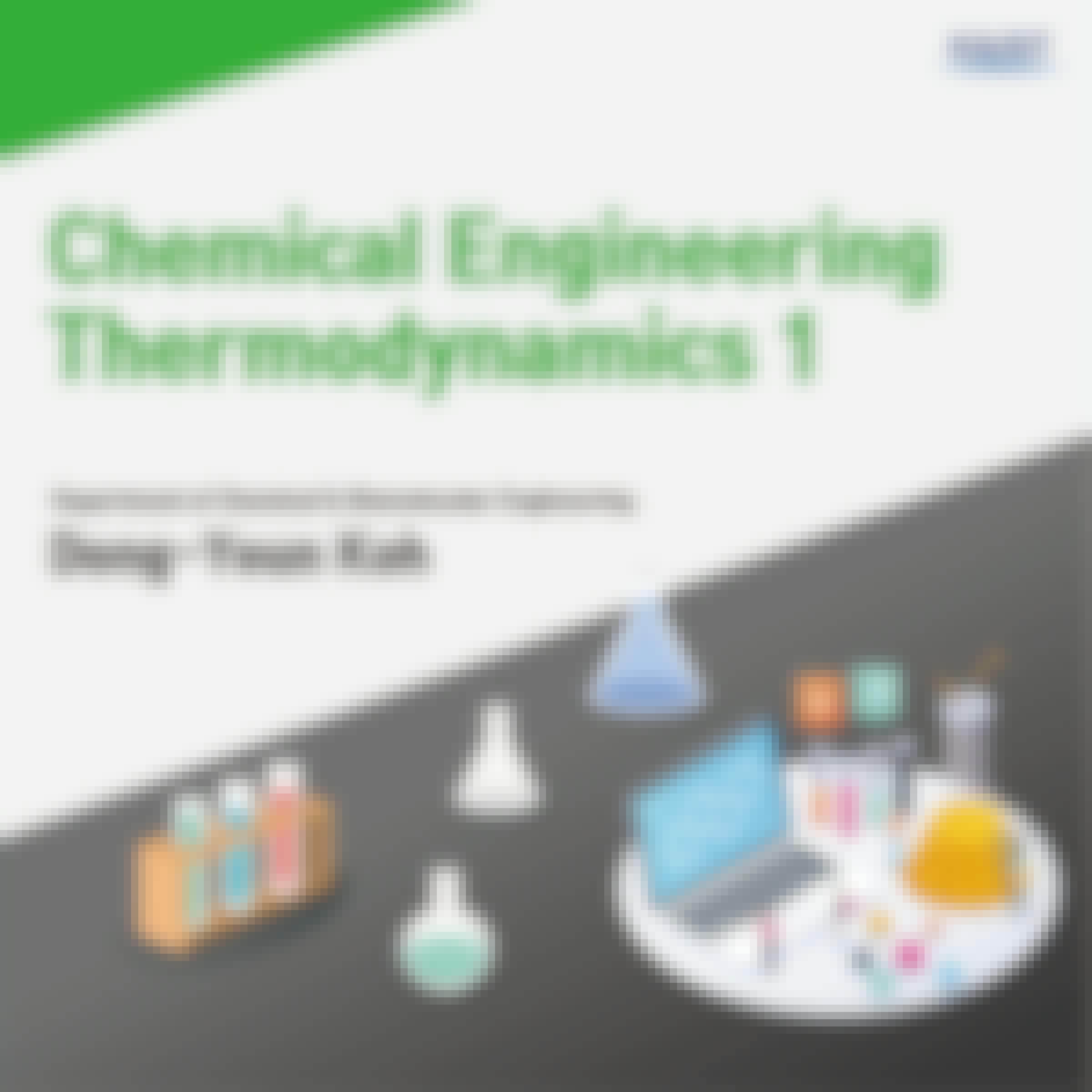 Status: Preview
Status: PreviewKorea Advanced Institute of Science and Technology(KAIST)
Skills you'll gain: Energy and Utilities, Chemical Engineering, Chemistry, Process Engineering, Mechanical Engineering, Environmental Engineering, Oil and Gas, Sustainable Engineering, Engineering Calculations, Physical Science, Mathematical Modeling
 Status: Free Trial
Status: Free TrialUniversity of California, Davis
Skills you'll gain: Chemical Engineering, Hazard Analysis, Process Engineering, Safety Assurance, Safety Training, Risk Management, Process Control, Failure Analysis, Accident Prevention, Risk Analysis

Coursera Project Network
Skills you'll gain: Simulation and Simulation Software, Simulations, Engineering Design Process, Finite Element Methods, Engineering Analysis, Hydraulics, Cloud-Based Integration, Verification And Validation, Mathematical Modeling
Petroleum Engineering learners also search
In summary, here are 10 of our most popular petroleum engineering courses
- Introduction to HSE Engineering: Khalifa University
- Health, Safety, and Environmental (HSE) Engineering: Khalifa University
- Petroleum Engineering with AI Applications: L&T EduTech
- Oil & Gas Industry Operations and Markets : Duke University
- Design of Industrial Piping Systems: L&T EduTech
- Hydrocarbon Exploration and Production: L&T EduTech
- Energy Production, Distribution & Safety: University at Buffalo
- Managing Major Engineering Projects: University of Leeds
- Natural Gas Production and Processing: L&T EduTech
- Chemical Engineering Thermodynamics 1: Korea Advanced Institute of Science and Technology(KAIST)










